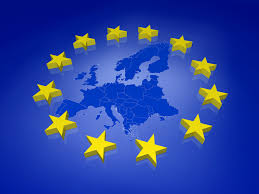There is no forgiveness for peoples, only for financial institutions
by Luigino Bruni
published in Avvenire on 15/07/2015
 The European Community, like every community, is a form of common good. And as the economic science teaches us, common goods are by their nature subject to the possibility of their own destruction. The so-called 'tragedy of the commons' (Garrett Hardin, 1968) is a well-known term for a what happens when the users of a common resource seek to maximize their individual interests, forgetting or leaving too much in the background the deterioration of the common resource caused by their consumption. If - as in the most famous example - the users of the same piece of grazing land only look at their own costs and benefits, they feel induced to bring more and more cows out, and so the final outcome of the process will be the destruction of the pasture.
The European Community, like every community, is a form of common good. And as the economic science teaches us, common goods are by their nature subject to the possibility of their own destruction. The so-called 'tragedy of the commons' (Garrett Hardin, 1968) is a well-known term for a what happens when the users of a common resource seek to maximize their individual interests, forgetting or leaving too much in the background the deterioration of the common resource caused by their consumption. If - as in the most famous example - the users of the same piece of grazing land only look at their own costs and benefits, they feel induced to bring more and more cows out, and so the final outcome of the process will be the destruction of the pasture.
The main message of the theory of the commons is the destruction of the common property as an unintended effect: no one wants to do so, but everyone contributes to its destruction.
The Greek crisis is showing us that today the various countries that formed the European Union are likely to destroy the common good built by themselves in the past decades. Every tragedy of the commons, reminds us the Nobel Prize for economics Elinor Ostrom, can only be avoided by changing the cultural perspective: we need to move from the logic of "myself" to that of "ourselves", starting to look at the common good as what is 'good for all' and not as 'good for no one'.
Communities, as the word's etymological root (cum-munus) also suggests, are a mixture of essential gifts and obligations - the Latin word munus means, in fact, both gift and duty. Gifts are not enough, we know that, but obligations are never enough either, because both of them are co-essential. Contracts and rules are only one side of the coin in a community. If the face of the gift is missing, communities implode, collapse and destroy themselves. It is the face of the gift that is missing from the Europe of our days, a gift that used to be rather central to its creation in the post-war era. Rules have occupied all the available space. And so the founding pact is being reduced to a mere contract, and in contracts, unlike pacts, there is no room for giving gifts, causing communities disappear and clubs be born.
The real possible and sustainable solution for the Greek crisis would have been a solution with con-doning, that is, a partial gift of the debt, because in Greece's current economic, psychological and social situation it is unthinkable that the debts of a dimension generating other debts through new loans with ruthless conditions could be repaid. In fact, the most shocking paradox of these years of financial and economic crisis is seeing the register of gift applied to financial debt, while it is being denied to the peoples and citizens - how many trillions of debts of the financial institutions have been actually condoned?
Today, the great mistake of Europe, or better say some of its most powerful rulers, is thinking that they can solve a crisis of the pact by resorting to the register of the contract only. From every big crisis the way out is through a good combination of rules and gifts, never through the mere tightening of the rules. Gifts are reinforced through education to the rules of accountability, and rules are humanized when they are accompanied by the gratuitousness of the gift. But to be able to give gifts to those who have made mistakes (and the Greeks have) it is first necessary to reckon and trust that the people and the citizens will have the moral energy to start over and become worthy of a new trust. Any real trust is above all a gift, because when trust is based solely on contracts, the contract ends up destroying the trust that it was meant to re-create.
Rules without forgiveness, obligations without gifts are unable to maintain the common goods, especially the primary ones underpinning our fragile democracy.
We reached Pluto, we have made some extraordinary and wonderful progress in science and technology. This crisis is showing us that in terms of the relational and ethical ability to handle huge community crises we are still too similar to the people of the Neolithic Age, and we have also probably lost some of the skills and wisdom that the Christian Middle Ages and modernity left us in heritage.
Oikonomia, that is, the rules of the house, is not enough to build a good polis. In Europe today there is a need of gift giving and for-giving, a word alien to capitalist economy that nobody dares to evoke around the tables that count, because it has been worn out, weakened and reduced to gadgets and private philanthropy by us. But without recovering this great word that is of a foundational importance in communities, we are destined to witness an inexorable decline of the common land that would still have the resources to feed us.
Download article in pdf







